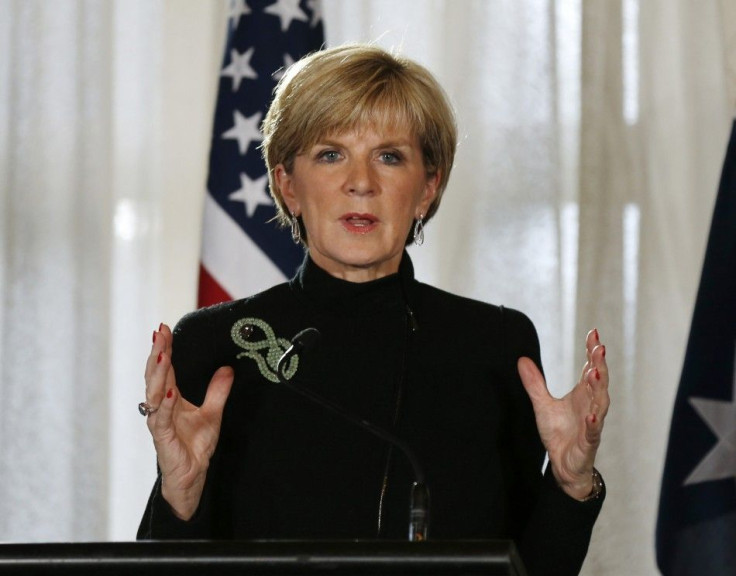Julie Bishop Rated Most Popular Politician in Australia; Tony Abbott, Joe Hockey Scored Low

Australia's Foreign Minister Julie Bishop has been named the most popular minister in the country. She bested 18 male politicians as the only woman in the Abbott government's Cabinet. According to reports, Australian voters rated her as the top minister with Malcolm Turnbull in second place. Prime Minister Tony Abbott was named 14th popular, while Treasurer Joe Hockey remained at the bottom in 19th place.
The survey was conducted by the McNair Ingenuity Research with the participation of 1,004 Australians. Respondents were asked to rate each politician based on a scale of 100 for excellent, 75 for good, 50 for average, 25 for poor and zero for terrible.
Reports said Bishop scored the highest with a score of 57.6. When she was informed of the results, she said she was "delighted" and mentioned the efforts of the members of her team for their contribution. Bishop added that she and her staff have delivered "core promises" they made in the last election.
The foreign minister has been in the spotlight lately for leading Australia in condemning the downing of the Malaysia Airlines Flight MH17 in Ukraine. She spearheaded the country's campaign in the United Nations.
Mr Abbott and Mr Hockey, whose currently unpopularity is associated with the Budget, scored 39.1 and 32.1, respectively. Majority of Australians were not happy with the budget cuts announced by the government in May, reports said.
Meanwhile, Bishop told ABC that she expected Arab states to join the international coalition against the Islamic State of Syria and Iraq, and contribute to U.S.-led airstrikes in Iraq. She said the cooperation of the Arab League nations would be "absolutely vital."
She explained that their contribution does not have to be military since there are other ways to disrupt ISIS activity and protect civilians. The Arab League had met in Cairo on Sept 8 and passed a resolution to fight ISIS extremism. Reports indicate there was no explicit mention of a military action.
On the subject of Australia's role in Iraq, Bishop reiterated that the government will have to see a "clear set of objectives" and determine the overall goal. She said Australia will assess what resources are needed before deciding to contribute to the international coalition.





















